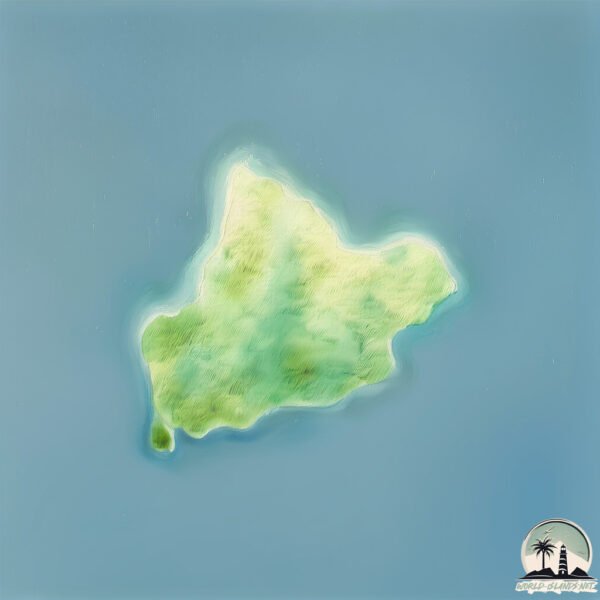Hua

Welcome to Hua, a Temperate island in the South China Sea, part of the majestic Pacific Ocean. This guide offers a comprehensive overview of what makes Hua unique – from its geography and climate to its population, infrastructure, and beyond. Dive into the details:
- Geography and Size: Explore the island’s size and location.
- Climate and Weather: Weather patterns and temperature.
- Topography and Nature: Uncover the natural wonders of the island.
- Infrastructure and Travelling: Insights on reaching, staying, and making the most of your visit.
- News and Headlines: Latest News.
Geography and size of Hua
Size: 1.439 km²
Coastline: 5.5 km
Ocean: Pacific Ocean
Sea: South China Sea
Continent: Asia
Hua is a Small Island spanning 1.4 km² with a coastline of 5.5 km.
Archipel: –
Tectonic Plate: Yangtze – A minor tectonic plate in East Asia, often considered a part of the Eurasian Plate. It’s primarily continental and covers the Yangtze River area in China, playing a significant role in the region’s geological stability.
The geographic heart of the island is pinpointed at these coordinates:
Latitude: 23.40384218 / Longitude: 119.32217425
Climate and weather of Hua
Climate Zone: Temperate
Climate Details: Monsoon-Influenced Humid Subtropical Climate
Temperature: Hot Summer
Climate Characteristics: Known for hot, humid summers with significant monsoon rains, contrasted by mild, drier winters.
Topography and nature of Hua
Timezone: UTC+08:00
Timezone places: Australia/Perth
Max. Elevation: 28 m
Mean Elevation: 20 m
Vegetation: Agricultural Mosaic
Tree Coverage: 21%
The mean elevation is 20 m. The highest elevation on the island reaches approximately 28 meters above sea level. The island is characterized by Plains: Flat, low-lying lands characterized by a maximum elevation of up to 200 meters. On islands, plains are typically coastal lowlands or central flat areas.
Dominating Vegetation: Agricultural Mosaic
A mix of cropland and natural vegetation, often seen in rural landscapes where agricultural fields are interspersed with patches of natural habitats. Hua has a tree cover of 21 %.
Vegetation: 3 vegetation zones – Moderately Diverse Island
These islands start to show a broader range of ecological niches. With three vegetation zones, they may offer a mix of ecosystems like coastal areas, inland woods, and perhaps a distinct wetland or dry area. This diversity supports a wider range of flora and fauna, making these islands more ecologically complex than those with minimal diversity.
Infrastructure and Travelling to Hua
Does the island have a public airport? no.
There is no public and scheduled airport on Hua. The nearest airport is Penghu Magong Airport, located 38 km away.
Does the island have a major port? no.
There are no major ports on Hua. The closest major port is PENG-HU KANG, approximately 30 km away.
The mean population of Hua is 102 per km². Hua is Moderately Inhabited. The island belongs to Taiwan.
Continuing your journey, Xiyu is the next notable island, situated merely km away.
Hua Hin - Monkey Island (Siam Pearl Cruises)



Taiwan is classified as Developed region: nonG7: Developed economies outside of the Group of Seven, characterized by high income and advanced economic structures. The level of income is High income: nonOECD.
News – Latest Updates and Headlines from Hua
Stay informed with the most recent news and important headlines from Hua. Here’s a roundup of the latest developments.
Please note: The data used here has been primarily extracted from satellite readings. Deviations from exact values may occur, particularly regarding the height of elevations and population density. Land area and coastline measurements refer to average values at mean high tide.
